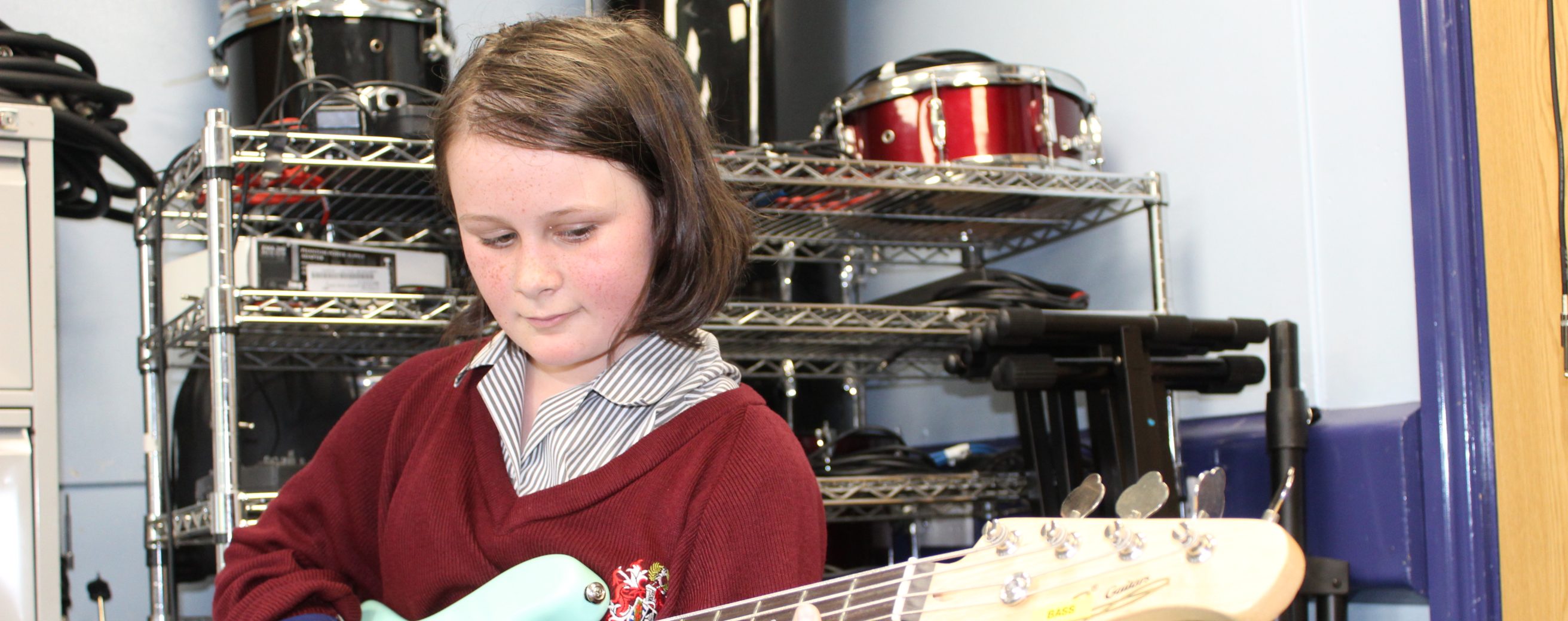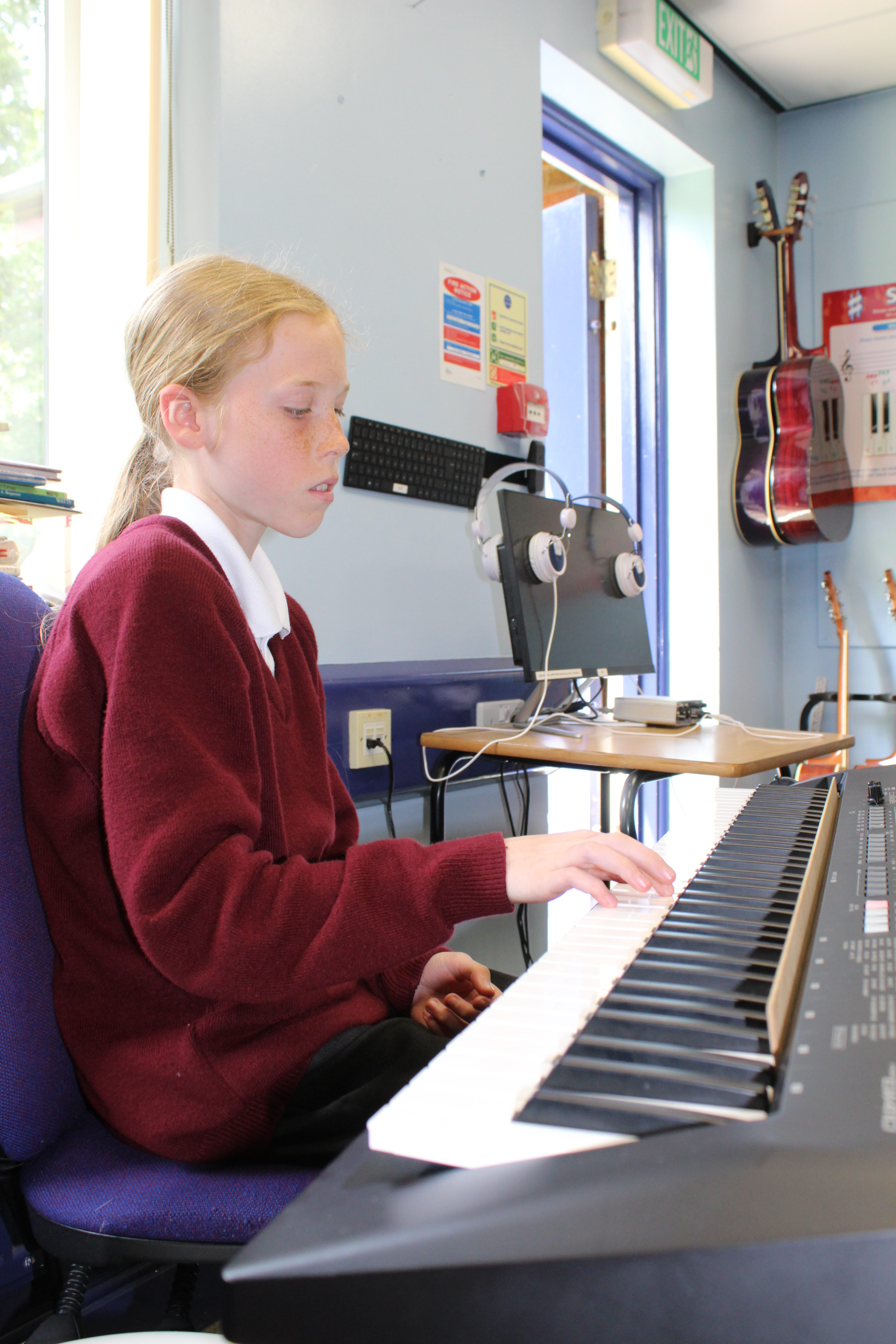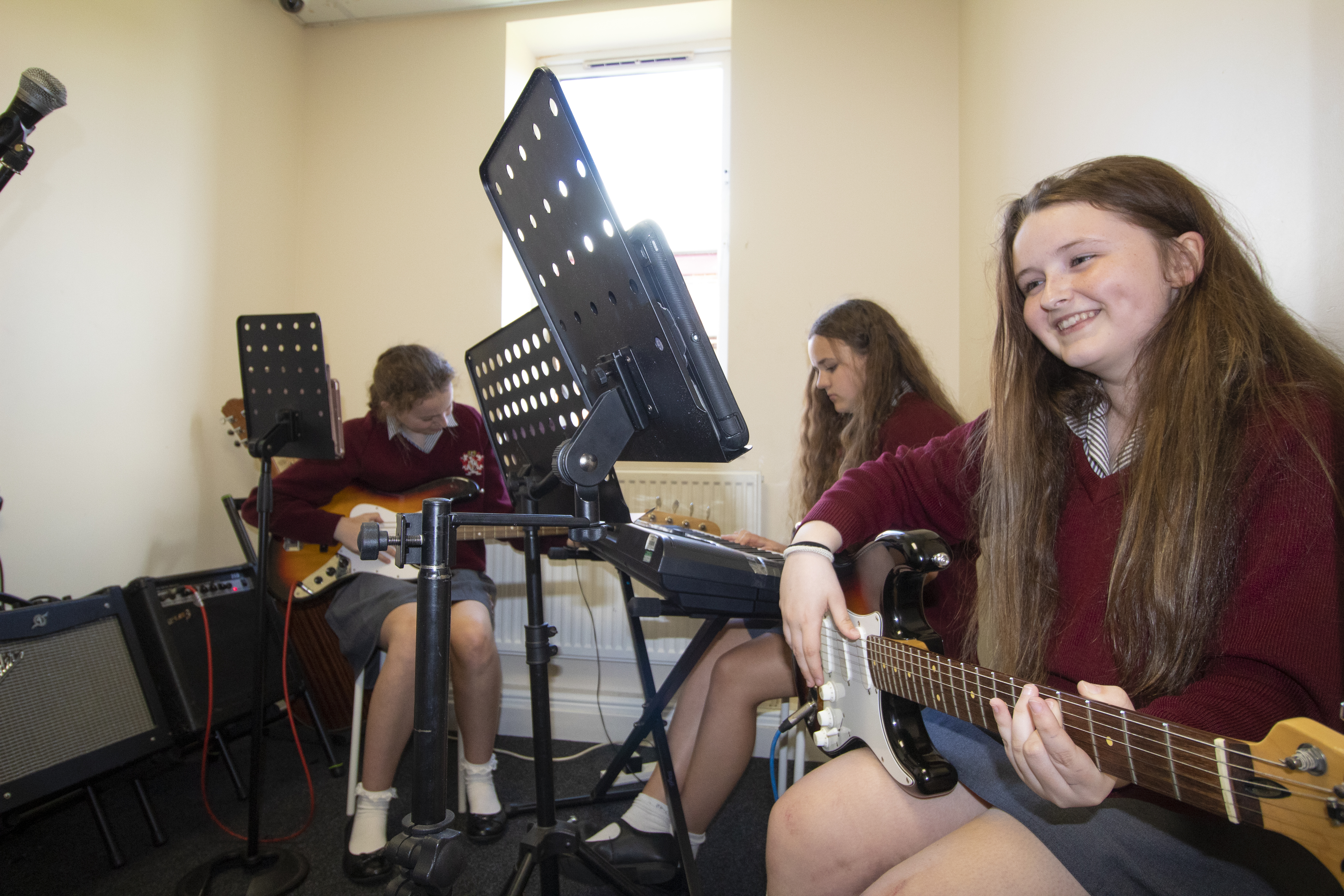Music
At Saint Aidan’s we believe that music is an essential part of a broad and balanced education. Through singing, composing, instrumental skills, music technology and listening to music from a range of historical periods and cultures, we aim to equip children with the skills and confidence to enjoy a lifetime of music making and appreciation.
Here is a link to our curriculum statement:
Key Stage 3
Learners study music for one hour per week throughout years 7, 8 and 9. This is delivered by subject specialists who, in addition to being experienced classroom practitioners, have a wealth of experience working professionally in the music industry as performers, band leaders and production technicians.
Key Stage 3 Music classes are of mixed ability. In year 7 we identify the skills and knowledge that children have acquired during Key Stage 2 and those that have had private instrumental or vocal lessons. This allows us to set an appropriate level of challenge for all learners at the start of their learning journey at Saint Aidan’s.
Year 7 mostly consists of whole class ensemble work through a range of instrumental and singing activities. During learners’ first year we aim to provide them with a secure grasp of the fundamental building blocks of music, an understanding of melody, rhythm and harmony, basic keyboard skills, some notation reading skills and general vocabulary to describe music broadly.
In years 8 and 9, learners undertake a Band Skills project – a format first popularised by the Musical Futures initiative. This sees our students placed in a ‘real-life’ pop band rehearsal environment culminating in a group performance at the end of each unit. This allows learners to develop the instrumental and vocal skills from year 7 and a more individual musical identify emerges from each child.
The statutory requirements of the National Curriculum are met through a range of topics. The curriculum has been designed to be broad and diverse. It is ambitious and of appropriate breadth but, importantly, affords learners the time and depth to consolidate and develop their musical skills and knowledge. Learners also listen to a wide range of music from historical periods and cultures, with reference to the Model Music Curriculum.
Learners are introduced to music making using technology, with numerous opportunities throughout to compose original music using a Digital Audio Workstation (DAW).
To support learners as fully as we can we use a wide range of multimedia teaching resources, including audio and video tutorials. These resources allow students to make progress at their own pace, often independently. We use the Showbie platform to organise classes and resources.
Learners are formally assessed three times per year. Formative assessment takes place continually during each lesson either verbally or by teaching staff demonstrating and modelling correct vocal and instrumental techniques. Progress is tracked using a catalogue of video and audio evidence built up throughout Key Stage 3.
Here is an overview of our Key Stage 3 Music curriculum:
Key Stage 4
All Year 10 and 11 students study the Eduqas Level 1/2 Performing Arts Technical Award.
Eduqas Performing Arts Technical Award Homepage
The Vocational Award in Performing Arts has been designed to support learners who want to learn about this sector and the potential it can offer them for their careers or further study. Further study would provide learners with the opportunity to develop a range of specialist and general skills in music that would support their progression to employment.
The qualification aims to develop learners’ knowledge and understanding of the performing arts sector and provide them with opportunities to develop associated practical skills. Skills covered include performing existing works, creating original works and planning commissioned work.
The course consists entirely of coursework. There is no exam. The three units that make up the qualification focus on applying knowledge, skills and understanding through purposeful tasks that have many of the characteristics of real industry work.
Students study for 2.5 hours per week averaged over the two-year course. The course is equivalent to 1 GCSE.
Here is an overview of the Key Stage 4 Performing Arts curriculum. Please note that units 1 and 2 run concurrently and not linearly throughout Year 10. Unit 1 Performing will also extend into the early part of Year 11. This provides students with the maximum amount of practise and development time for their performances:
Enrichment
To help students progress to levels of excellence beyond the form curriculum, we provide a range of enrichment opportunities. Through our partnership with Lancashire Music Service, we currently run brass, woodwind and string ensembles. We also work in partnership with several local music teachers who provide individual tuition on a range of rock and pop instruments and voice. There are after school and lunch time clubs where students can play guitar, sing, and be part of a band.
Throughout the year there are many performing opportunities and concerts both in school and in the wider community.
Department Staff
| Mr P Dalton | Head of Music |
| Mr L Charnock | Music Teacher |
| Mr T Markland | Vocal and Piano Teacher |
| Mrs C Shipway | Woodwind Teacher |
| Mr M Waltho | Brass Teacher |
| Mr G Heyes | Guitar and Bass Teacher |



